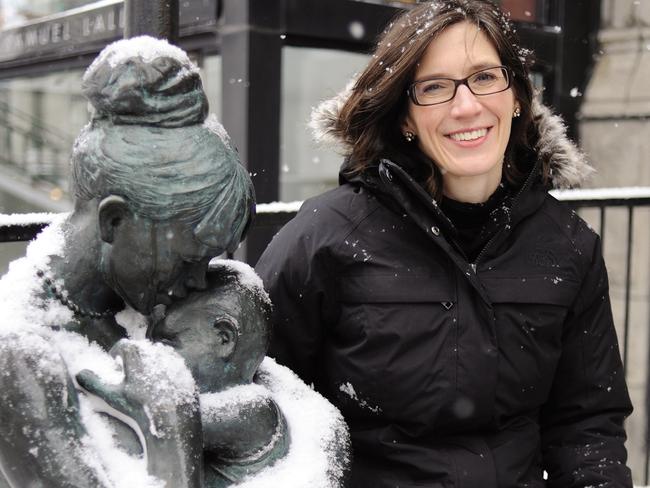Love is in the genes, science says
New research shows some people have a genetic predisposition towards better relationships - but there’s good news even for those of us who don’t carry the gene in question.
NEVER mind finding a partner with a terrific personality, caring nature and good life prospects. What you really want is a person with the CC variant of the CD38 gene.
That’s the suggestion from researchers at Canada’s McGill University, who recently discovered that people carrying this type of gene were more likely to act communally, agreeably and affectionately, and feel more satisfied in their relationships to boot.
The bad news? There are three variants of this tiny splice of our DNA code, and fewer than 50 per cent of people have the prized ‘CC’ type.
But there’s good news too. Scientists found that as long as one person in a couple had the CC variant, both reported higher levels of harmony and satisfaction.
Lead researcher Professor Jennifer Bartz told News Corp that the genetic study of loving relationships could be traced back to a most surprising source: the vole.
Or two species of vole, to be precise: the highly-socialised, pair-bonding prairie vole, and its almost identical but asocial relative, the mountain vole.
Studies of those two species revealed the prairie vole was flush with the hormone oxytocin, while the mountain vole had little of it. This discovery prompted decades of studies into oxytocin (dubbed the “love hormone”) and its role in human behaviour.
The new research investigated the genes that govern oxytocin production, but Prof Bartz stressed that even those of us who don’t have the ‘CC’ variant of the CD38 gene could still demonstrate the communal behaviours that make for harmonious relationships.

“Romantic relationships are incredibly complex and we know from decades of research in psychology that a host of factors can influence outcomes … people’s early care giving experiences, current stresses, all kinds of factors … and I would say this isn’t the only gene, it’s one of many genes, and probably one of many biological systems that plays a role in our relationships,” she said.
Testing a potential future partner for the CC variant would technically be possible, Prof Bartz said, but it wasn’t as if people with that genetic difference always demonstrated the agreeable behaviours.
“Behaviours exist on a continuum,” she said. “So I’d be really careful about wanting to discriminate against partners who don’t possess the CC variant.”
“Our research suggests that those behaviours might be a little less intuitive or instinctual (for those without the CC variant) but certainly they’re not completely absent. They are behaviours that can be engaged in with concerted effort.”
And while the CC variant corresponds with greater relationship cohesion for both partners, it has yet to be proven that it corresponds to greater relationship longevity.
“Understanding why some relationships survive and some fail has been one of the major holy grails of close relationship research,” Prof Bartz said.
“For me what’s so interesting is the idea that humans have evolved to a certain extent to have a proclivity to form enduring pair bonds. Different biological systems have been co-opted to make humans have a proclivity to form these relationships, and breaking it down to which aspects – going from the biology to the psychology, nailing down that pathway, is so interesting.”
Originally published as Love is in the genes, science says
